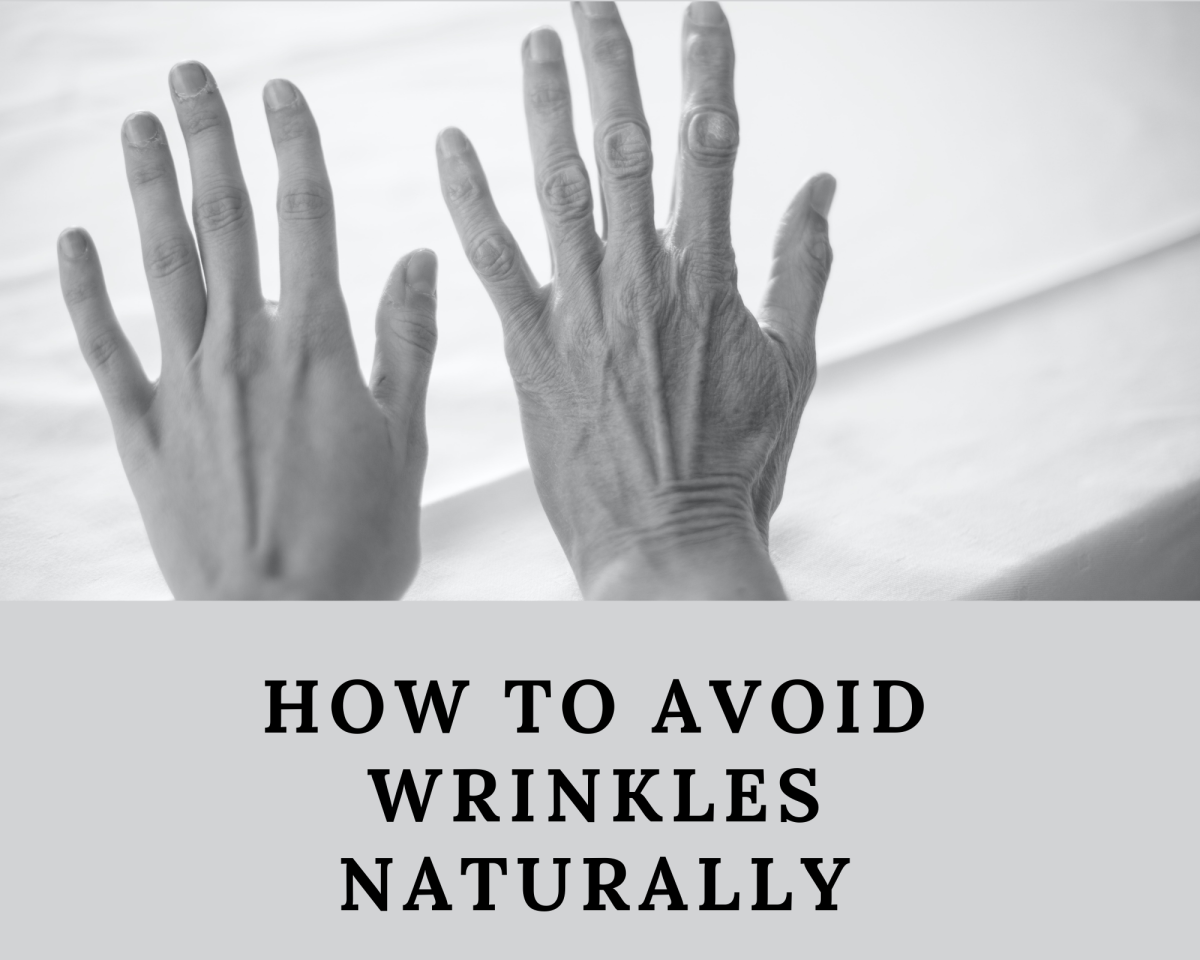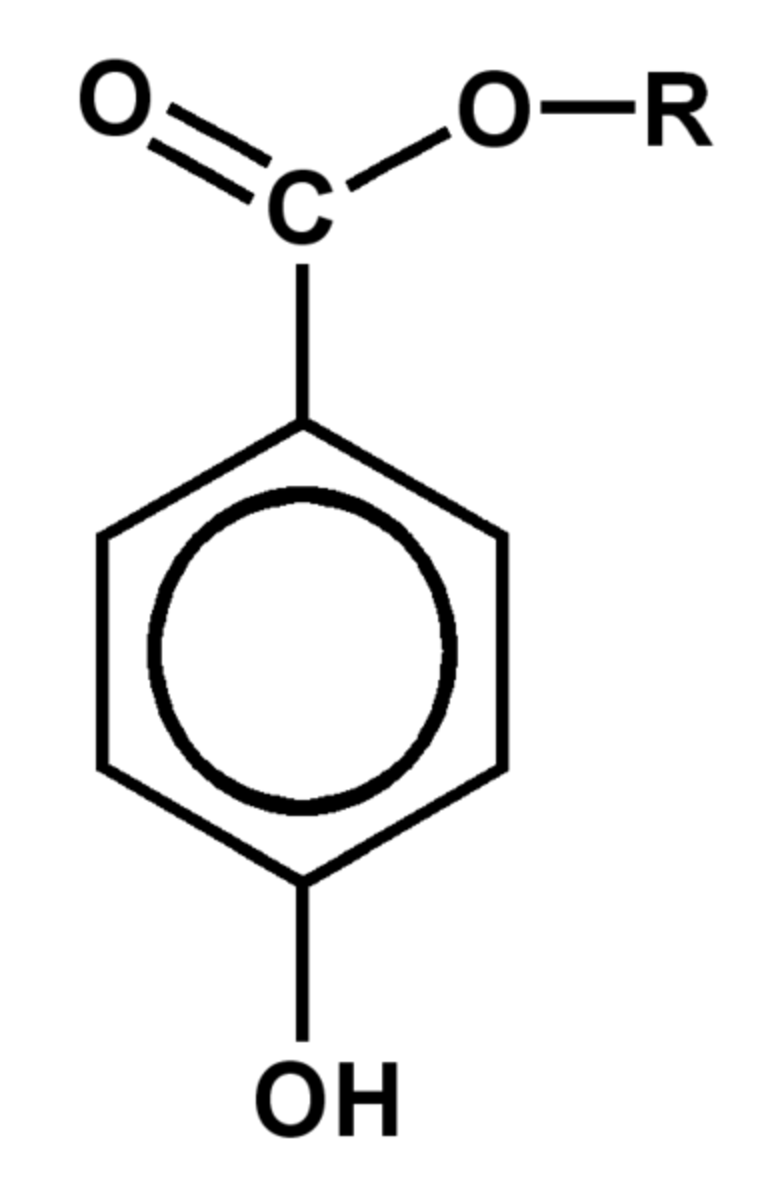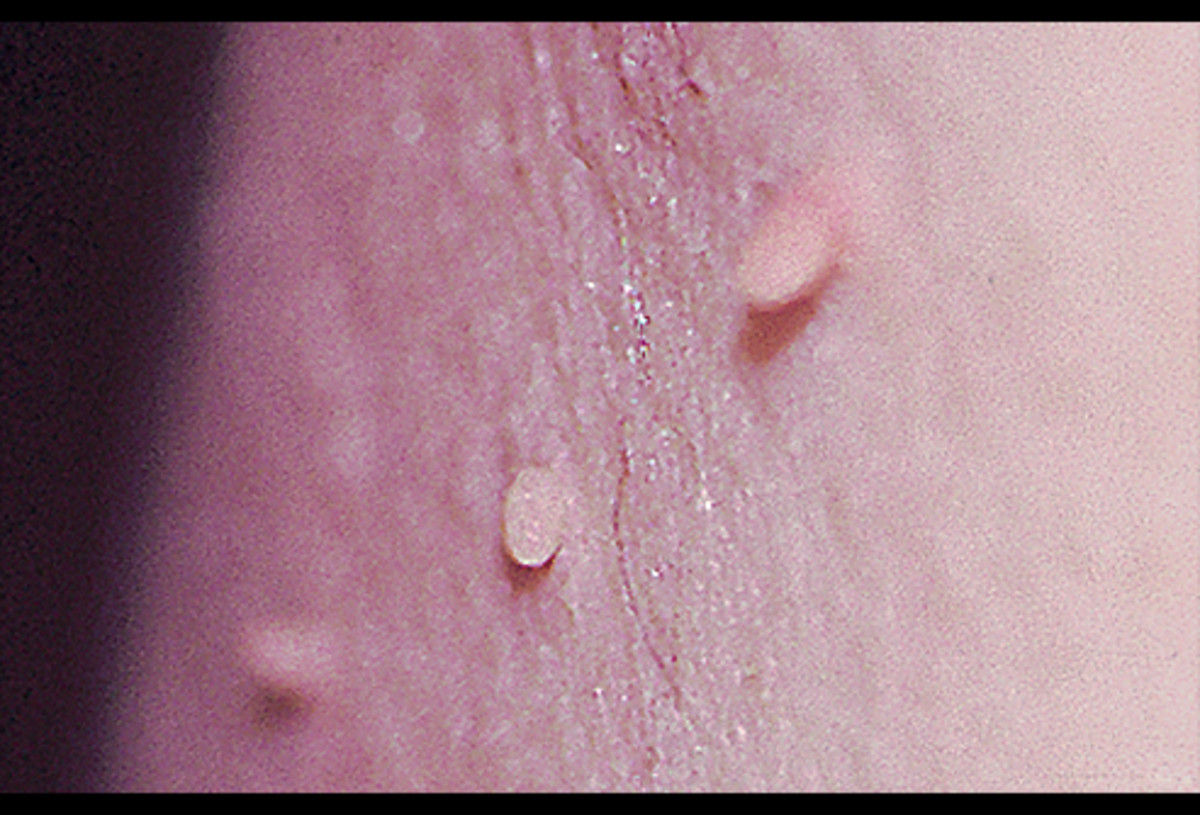How to Choose the Right Moisturiser for a Dehydrated Skin
Moisturisers for sensitive and dehydrated skin
Dehydrated skin lacks of natural moisturisers due to loss of water through evaporation while the upper layers of the skin have been damaged by sun, wind or other causes like bad eating habits, stress or others factors. When there is less than 10% of water in the upper layers of the skin, this condition become pretty serious. In my previous article I explained what are the sign of a dehydrated skin and how to use some natural remedies to alleviate the symptoms. However for people that want to buy specific creams and moisturisers they need to look at specific ingredients to select the right skin care products.
In this hub I would like to give a general guideline on what to look on the label to decide if it is the right product for you. Before starting with the ingredients, let’s talk about what a dehydrated skin needs in terms of skin care.
A treatment for a dry skin involves four different steps:
- Repairing the skin barrier that retains water and natural moisturisers. This barrier is formed by compounds like lipids in form of fatty acids cholesterol and ceramides which reside in the outmost layers of the skin.
- Increasing water levels
- Reducing traspidermal water loss
- Restoring the water barrier function, a natural barrier formed by amino acids and lactates that also help to retain water.
- Reducing water loss:
To slow or reduce the loss of water and liquids it is necessary to create a coat that seals the water within the natural barrier created by the skin. In other words we need to preserve the water in the sebum. Occlusives are ingredients that prevent the water to be lost. In this category we have Petroleum in a solution not exceeding 5% . Like lanolin and mineral oil these are widely used in the cosmetic industry to make creams and skin beauty products. Paraffin it is an example of occlusive. However there are some downsides to be considered. In fact lanonil and petroleum have been associates with dermatitis and therefore are not ideal for delicate and sensitive skins. Mineral oil has the downside to seal too much the skin forming a barrier to the external agents blocking natural external moisturisers to penetrate in the skin, in other words the skin would not breathe. A possible substitute for sensible skins, can be a natural oil. In fact, mineral oil is very often substituted with vegetable oil. However if you look for products that contain olive oil or Jojoba oil these satisfied the need to retain water with other benefits too. Jojoba oil is excellent in restoring the natural sebum and replenishing the outermost layers of the skin with nutrients. Organic olive oil is also good to exfoliate the skin and, being the dehydrated skin, flaky, this is an excellent way to get rid of dead skin while replenishing it with nutrients contained in the oil.
Look for products that contains ceramides. Ceradimes are kind of lipids and therefore essential compounds of the skin. There are five different types of ceramides and the product contained them has to give the right proportion.
Restoring the natural moisturisers within the skin.
To restore the natural moisture in the skin we need a particular ingredients called humectants. These are those elements that attract natural external moisture and help to retain it from the air. For instance Glycerine is a humectant widely used to make skin care products. It is also non colouring and odourless product that does not cause harm. Glycerine seems to be the right humectant for the skin. Right? Well almost! It is probably good for normal skin but if the skin is particularly sensitive or in case of severe dehydration, glycerine would not be a great help. The skin will probably need something more specific. The best solution would be using some natural products based on lecithin which is classified as natural phospholipid known as natural humectants which apparently does not cause any harm and it does exactly what the most known humectants do: they retains water and moisturisers providing the skin with all the needed nutrients. Another natural humectant is Pro vitamin B5 that provides panthenol. So go for products that possibly contain lecithin or Pro vitamin B5
Another category of ingredients particularly known for being beneficial for particular sensitive and dehydrated skin are the shield products made from natural sources like Aloe vera, cocoa oil and Jojoba oil already mentioned. They are very beneficial to the skin, because being natural products not only they are naturally humectants or emollients but they are rich in nutrients too. For example Aloe vera gel which contains absolutely everything the skin needs even 19 amino acids, water and sappy natural ingredients. Its healing properties on damaged skin have been known for ages. I have written an article if you want to know more about Aloe.
Surfactants
Surfactants remove the dirt on the skin by making those particles to emerge and being suspended so that they can be taken away easily. Not only dirt but also dead skin and greasy residues will be wiped away easily so the skin will be freed to breathe and rebuild the sebum with vital fatty acids and lipids. The most common Surfactans in products are used in shampoos and detergent and are Sulphate Laureth sodium lauryn sulphate, and in general all the ingredients that finish with extension Th or classified as PEG( Poly Ethinel Glycol). The problem with these latest category is that they contained chemicals that are not totally safe and can clog the pores. A better substitute it is their natural counterpart like Castile soap, Yucca extract and soapwort.
I understand that maybe it is not that easy to find exactly products that are 100%natural but chemical sulphate should be avoid when possible. Having said so, they are used in most of shampoos, detergents and beauty products so it is difficult to totally avoid them. However if you find a good organic product based on castile soap as the main ingredient, for example, it is probably a better start for your skin than the one that contains sulphate.
To summarise:
Natural humectants like lecithin are better than chemical ones like glycerine or occlusive like mineral oil contained in many products. Mineral oil can build up a barrier under the skin, clogging the pores and preventing the skin to receive the natural moisturisers and water from outside. Glycerine is a harmless product that helps to retains moisture and water but does not provide any nutritive elements like contained in olive oil and lecithin, the latest, a natural humectant.
Using natural agents like aloe, jojoba oil for instance increase the capacity of the skin to re-built the sebum and maintain the natural lipids and limiting the damaging effects of the weather condition on the outmost layers of the skin.
It is possible to substitute industrial Surfactans with some organic ingredients like the castile soap that do not strip the skin from its natural oil and nutrients.
A brief guide on how to look after your dehydrated skin.
1. Exfoliate the skin quite often. This process will free up the skin from greasy residues that clog the pores and dead skin preventing the cell to re-generate the sebum.
2. Stay away from harsh detergent and soaps avoid sulphate and paraffin products that derive from petroleum. They block the pores and they will damage the skin forming a coat that prevents the nutrients and natural moisturisers to penetrate.
3. Drink water at least more than 1 litre a day. Water will help to maintain the skin hydrated and it is the most important element the skin needs.
4. A balance diet would help to maintain a general healthy skin providing all the nutrients from within which are the best beauty regime ever. Consider to drink Aloe gel which does wonder for the skin.
5. Maintain a moisturising regime and be aware of the various components contained in the creams and skin products from the shops.
Conclusion:
The best moisturisers are, once again, in the range of organic beauty products. Particularly oils like olive oil, almond oil, jojoba oil, aloe vera, lecithin, are excellent in retaining the natural external moisturisers and releasing ingredients such vitamins and fatty acids that are needed to maintain the right level of moisture in the skin. Look for aloe vera gel, creams and soaps as aloe is a natural product that has been known to heal damaged skin very quickly generating new cells and replenishing the skin with essential components like amino acids, water and natural sappy components. Stay away from paraffin and sulphate products as they clog the upper layers of the skin making difficult to regenerate new cells. Drink water and plenty of liquid on top of eating well and moisturise your skin as often as you can with the right kind of products.














